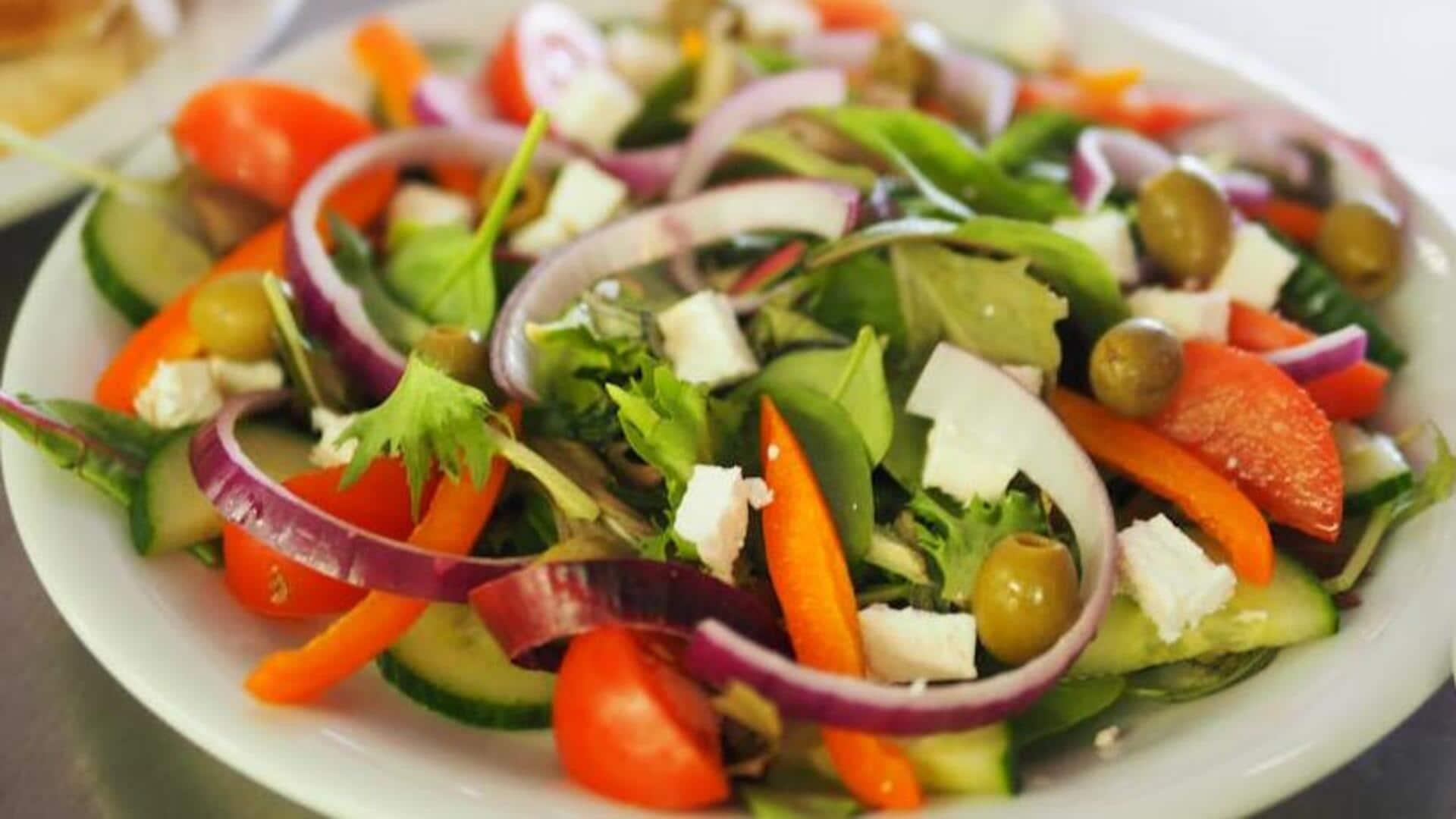
Don't believe these salad myths
What's the story
Salads are the holy grail of healthy eating, but there are several myths surrounding them that can be deceiving.
These misconceptions can influence dietary choices and health perceptions in general.
It is important to know these myths to make informed choices about including salads in your diet.
Here, we debunk some of the most common salad myths, bringing you clarity and insight into what makes a salad really healthy.
Calorie misconception
Myth: Salads are always low-calorie
One of the most common myths is that all salads are low on calories.
While vegetables in themselves are low on calories, the additions like dressings, cheese, and croutons can hike up the calorie count by a lot.
A seemingly simple salad may sometimes have more than 500 calories due to these additions.
So, be mindful of what goes into your salad if you're watching your calories.
Dressing dilemma
Myth: All dressings are healthy
Another misconception is that all salad dressings are healthy since they come with vegetables.
However, most store-bought dressings are loaded with sugar, sodium, and unhealthy fats.
Some creamy dressings can add unnecessary calories and cancel out the health benefits of a vegetable-based meal.
Going for homemade or vinaigrette style dressings with minimum additives is a healthier option.
Protein potential
Myth: Salads lack protein
There's this notion that salads can't give you enough protein for a balanced diet.
Well, not really; it's all about what you add to your salad.
Tossing some beans, nuts, seeds, or tofu can increase protein content by a lot without sacrificing taste or nutrition.
A well-rounded salad with a mix of ingredients can easily fulfill the daily protein quota.
Organic options
Myth: Organic greens are always better
Many think organic greens are always better than conventional ones in terms of nutrition and safety.
While organic produce may have lesser pesticide residues, it doesn't necessarily mean it's more nutritious than non-organic options.
The nutritional value largely depends on freshness and variety, rather than just being organic or not.
Filling factor
Myth: Salads can't be filling meals
Some think salads can't double up as filling meals, considering they don't have the substance of other dishes.
But add whole grains, like quinoa or brown rice, and proteins, like chickpeas or lentils, and salads can be filling meals in their own right without leaving you hungry a few hours after.